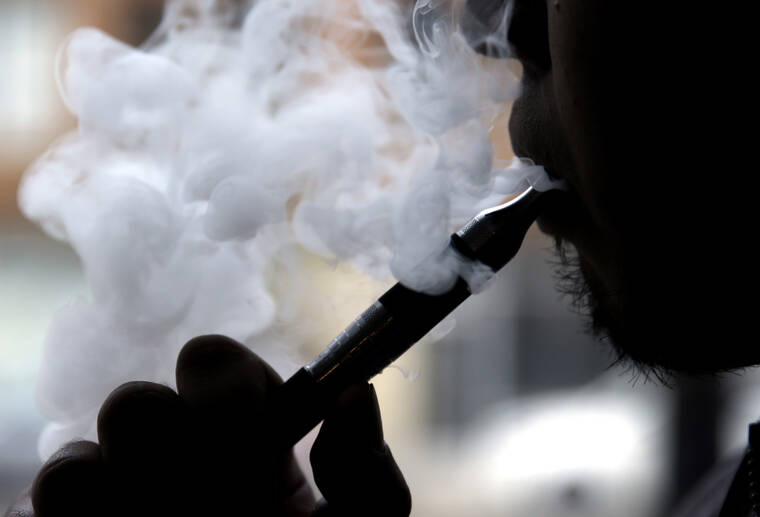WASHINGTON — Food and Drug Administration officials on Friday pledged a reset in the agency’s tobacco program, responding to criticisms that a lack of direction has hampered efforts to regulate cigarettes, vaping devices and related products.
The head of the agency’s tobacco center promised to deliver a five-year strategic plan by year’s end outlining priorities, including efforts to clean up a sprawling market of largely unauthorized electronic cigarettes. The agency also said it would provide more transparency to companies about its decisions, following the rejection of more than 1 million applications from e-cigarette makers seeking to market their products as alternatives for adult smokers.
The announcement comes as the tobacco center is besieged by criticism from all sides — including lawmakers, anti-smoking advocates and tobacco companies.
FDA chief Dr. Robert Califf commissioned separate, external reviews of the agency’s tobacco and food programs last summer, amid controversies in both units.
The blistering report on the tobacco program, issued in December, described the FDA as “reactive and overwhelmed,” with a demoralized workforce that struggles to oversee both traditional tobacco products and a freewheeling e-cigarette market.
The report mainly channeled long-standing grievances from groups on opposing sides of the tobacco issue. Public health groups want the FDA to more aggressively police regular cigarettes and flavored e-cigarettes that appeal to teenagers. Tobacco companies complain that the FDA is unwilling to approve new alternative products — including e-cigarettes — that might help adults quit smoking.
FDA’s tobacco chief, Brian King, said Friday that regulators are looking at ways to “better communicate” with companies about how the FDA makes decisions. The agency is also working to streamline the review process, when possible.
“Some things will take longer than others, but we’re committed to getting everything done that we’ve outlined as expeditiously as possible,” King said in an interview.
Responding to a recommendation in the report, King said the FDA would convene a meeting with the Department of Justice on its efforts to crack down on unauthorized e-cigarettes, particularly fruit- and candy-flavored products that are popular among teens.
The FDA has sent hundreds of warning letters to vape shops and e-cigarette manufacturers in recent years, calling on them to remove products. But the letters are sometimes ignored. King pointed out that the FDA relies on the Justice Department to make decisions about when to bring lawsuits against bad actors.
In recent months, the FDA and the Justice Department have announced the first lawsuits and fines targeting vape shops and manufacturers selling unauthorized products.
“Those are the first of their kind and I hope they’re a wake-up call to industry that if you are violating the law we are going to use the full portfolio of our enforcement activities to ensure that you comply,” King said.
The FDA’s tobacco center was created by Congress in 2009 and granted sweeping powers to remake the industry, including banning harmful ingredients from traditional products and authorizing new, less-harmful alternatives.
But FDA has been stalled by “near constant” litigation, the December report noted.
Tobacco industry lawsuits have repeatedly blocked FDA actions designed to help smokers quit, including adding graphic warnings to cigarette packs.
“Unfortunately, the tobacco industry has fought the agency on many of the science-based actions we’ve taken, putting profits over public health,” King said.
Meanwhile, lawsuits brought by anti-tobacco groups forced the FDA to speed up its timeline for reviewing more than a million e-cigarette applications from four years to 10 months. The agency has repeatedly pushed back its deadline for completing its review, prompting criticism from parent groups and members of Congress. The agency now says it will take until 2024 to review the remaining products.
King said the FDA will look at whether changes to the law are needed to help the agency accomplish its work.
Among other steps, the FDA has repeatedly asked Congress to collect user fees from e-cigarette makers to help hire more staff and fund product reviews. So far, Congress has not granted that request.



